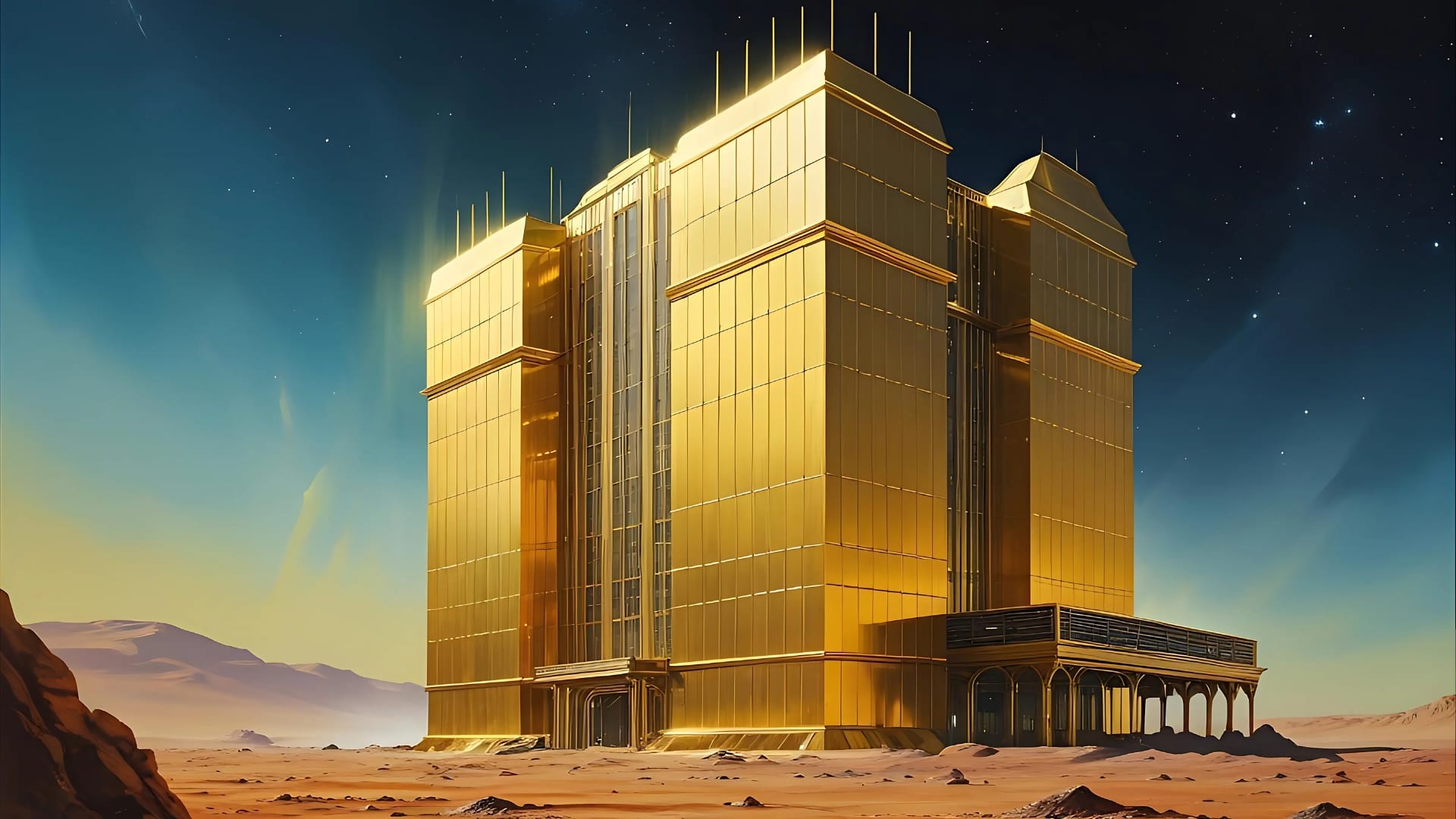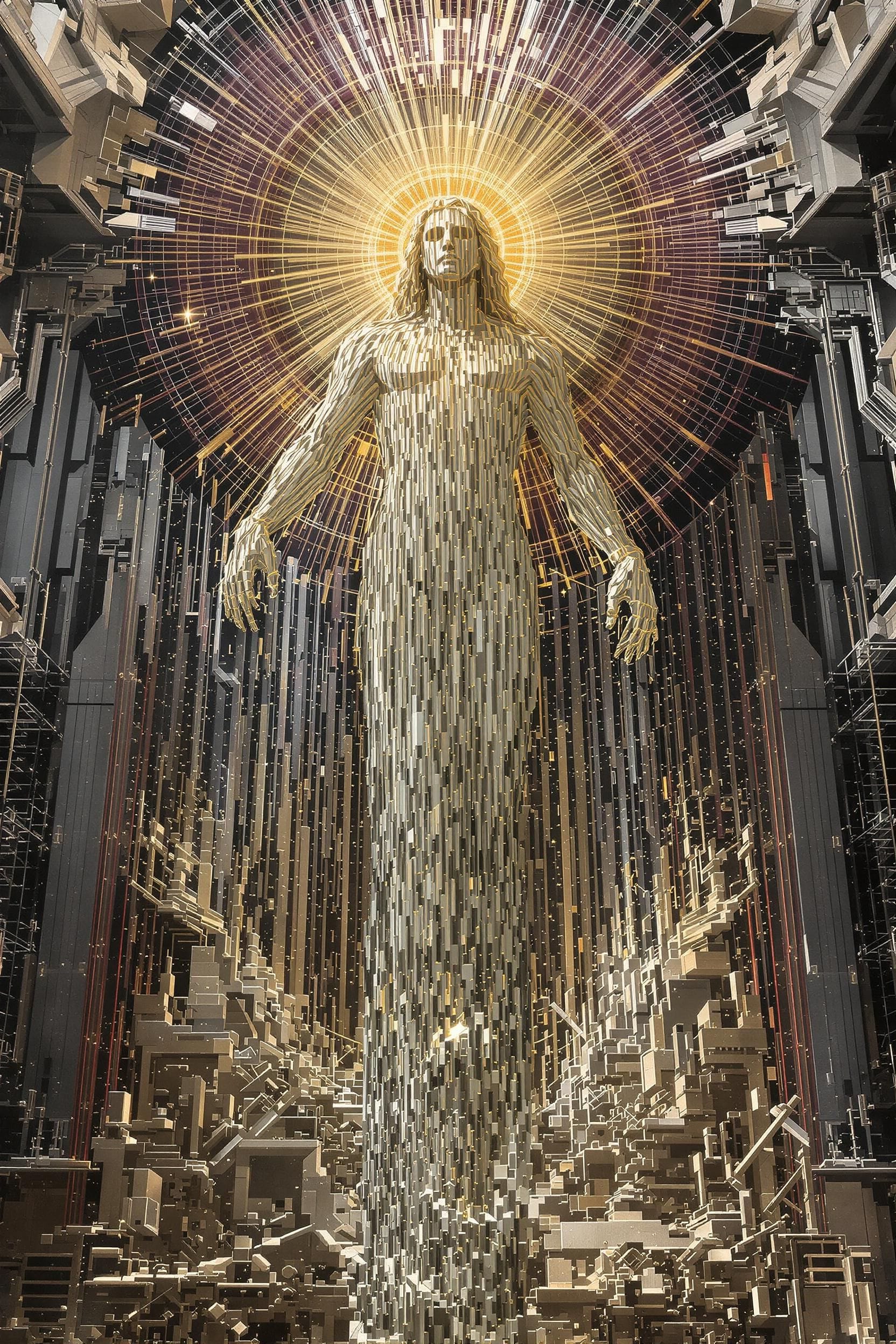Luxury Air of a New Era
Thousands of Earth's inhabitants, fueled by the promise of clean air and a fresh start, flocked to Nibiru through teleportation portals.

Once upon a time in the year 2090, on the distant planet of Nibiru, humanity found solace from Earth's overwhelming pollution and overpopulation. Nibiru offered a new beginning, a chance to start afresh amidst the vast expanse of uncharted lands. However, even in this promising new world, the basic necessity of breathing air had become a luxury that only a few could afford.
The air on Nibiru was moderately polluted with swirling dust particles, a consequence of its unique atmospheric conditions. It wasn't pristine, but it was still a breath of fresh air compared to the suffocating smog that once plagued Earth. As the inhabitants of Nibiru settled into their new lives, they began to cultivate the land and develop advanced agricultural practices to sustain themselves.
Among the pioneers who spearheaded the agricultural movement were the agricultural specialists, skilled individuals who possessed the knowledge to grow crops in the harsh conditions of Nibiru. They quickly became the wealthiest individuals on the planet, for they held the power to feed the growing population and supply them with the very essence of life itself: food and fresh breathing air.
Meanwhile, back on Earth, the plight of the planet had worsened. Pollution had reached catastrophic levels, rendering the air barely breathable. The scarcity of clean air led to an unprecedented crisis. People were desperate for an escape, a chance at a better life. And so, the teleportation technology, once seen as a distant dream, became a reality.

Thousands of Earth's inhabitants, fueled by the promise of clean air and a fresh start, flocked to Nibiru through teleportation portals. They arrived with hope in their hearts, only to realize that the air they had sought after was now a commodity—a luxury they had to pay for.
Enterprising individuals had recognized the opportunity and established a thriving business around the sale of fresh breathing air. It became a commercial endeavor, with prices skyrocketing to unimaginable heights.
The cost of a single hour of fresh air reached a staggering Rs. 50,000, a sum that only the elite could afford.
The once-polluted Earth refugees, now trapped in a new cycle of dependence, felt disillusioned. They had left their home planet to escape the clutches of a polluted environment, only to find themselves in a similar predicament once again. The dream of a fresh start had morphed into a cruel reality of exploitation and financial disparity.
As the chasm between the haves and the have-nots widened, whispers of discontent began to echo across the settlements of Nibiru.
A movement against the monetization of air gained momentum, with passionate individuals demanding equal access to this vital resource. Their rallying cry was simple: fresh air was a basic right, not a privilege reserved for the wealthy.
In the face of growing resistance, the agricultural specialists, who held immense power and wealth, found themselves at a crossroads. They could continue to profit from the plight of their fellow humans or choose a different path—a path that would bring about a fairer, more equitable Nibiru.
And so, the agricultural specialists, led by their sense of responsibility, united to bring about change. They used their resources and expertise to develop innovative air filtration systems that would cleanse the planet's atmosphere.
These systems were designed to purify the air and make it breathable for all, eradicating the need for exorbitant prices and commercialization.
The movement for clean, accessible air spread like wildfire, sweeping across Nibiru and galvanizing its inhabitants. The people joined forces, demanding a future where air was no longer a commodity but a right granted to all.
Governments and corporations were forced to yield to the will of the people, realizing that the prosperity of a planet could not be sustained on the exploitation of its most vital resource.
With the agricultural specialists leading the charge, Nibiru underwent a transformation. The advanced air filtration systems were implemented on a massive scale, gradually cleansing the atmosphere and making it safer to breathe.
The once-modest agricultural specialists now dedicated their knowledge and resources to ensuring that fresh air became a shared asset, free from the shackles of profit.
Communities across Nibiru came together to support the cause. Grassroots initiatives sprouted, focusing on reforestation efforts, sustainable farming practices, and educating the population about the importance of preserving their newfound clean air. People became guardians of the environment, understanding that their survival depended on a healthy planet.
Over time, the air quality improved dramatically. Nibiru's skies began to clear, revealing a breathtaking panorama of stars and celestial wonders. The planet's inhabitants marveled at the beauty surrounding them, grateful for the clean air they now enjoyed without any financial burden.
As the years passed, Nibiru became a shining example of what unity and environmental stewardship could achieve. The lessons learned from Earth's mistakes had driven the planet's inhabitants to prioritize sustainability and ensure a future where every breath was a gift freely given.
The legacy of the agricultural specialists persisted, as their wealth was redirected toward scientific advancements, creating technologies that promoted harmony between humanity and the planet.
They channeled their resources into further research, striving to find solutions that would restore Earth to its former glory and grant its inhabitants a chance to breathe freely once more.
The story of Nibiru and its journey toward clean air spread across the universe, inspiring other worlds to take action. It served as a reminder that even in the darkest of times, when the air itself had a price tag, humanity's indomitable spirit could overcome any obstacle.
And so, the tale of Nibiru became a symbol of hope—a testament to the power of unity, the resilience of the human spirit, and the importance of safeguarding the very air we breathe.
It taught the universe that no matter how dire the circumstances, there was always room for change, and that change, when driven by the collective will of the people, could truly transform the world.
In the annals of history, Nibiru would forever be remembered as the planet that emerged from the shadows, embracing a future where fresh air was not a luxury but a birthright.
A future where the concept of paying for each breath became a distant memory, replaced by a world where the air was untainted and freely shared by all.




